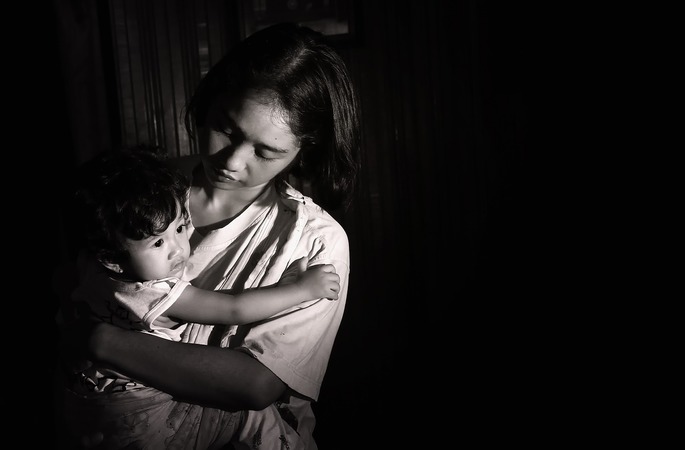Society tries to put us, women, into boxes.
Like the models in a glossy magazine cover, we have to be flawless; trophy wives with beauty, body, and brains; superwomen who balance home life, career, and child-rearing with ease. We have to be perfect mothers who opt for natural births, use organic products, and exclusively breastfeed our babies.
If we fall short in any of these categories, say if we were born with shorter legs or larger body frames. Or less-than-picture-perfect faces; if we choose career over family; or like me, give birth via cesarean section and struggle to breastfeed the newborns, the society tells we are not worthy of praise.
When I was pregnant, my husband and I were prepared for normal delivery. We enrolled in a Lamaze class; I practised my breathing exercises, walked, squatted, used evening primroses, and did all that my OB-GYN and Google suggested.
When my due date arrived, all I had were cramps. I exercised more and pushed myself harder so the baby would come out. Nothing happened.
I laboured for more than 36 hours. Like a good student, I used my Lamaze breathing like a pro. Still, my cervix would not dilate. I had dry labour for 27 hours until the fetal monitor showed that my baby was in distress. In total, I was labouring for more than 72 hours.
After all the inhaling and exhaling to relieve the labour pain, I was rushed to the operating room for an emergency Cesarean section. To save my baby, I gave up my dream of natural birth.
A few hours later, I held my son in my arms, but they immediately took him away for observation. He stayed in the neonatal ward for five days. It was not the birth story I imagined.
It tore my heart when nurses injected antibiotics into him, and when they collected a sample of his blood for another round of tests. My baby’s hands and feet were left bruised as needles were jabbed in and out of his small body. At the same time, my breasts did not produce milk. So the nurses fed him milk from other mothers’ while he struggled to nurse from me.
My baby wanted to nestle close to me all the time, was always crying and never sleeping. I was so exhausted. I did not know motherhood was so hard. I certainly did not witness the same from my mother, who had five children. My siblings slept well and cried only when hungry, wet, or sleepy.
Six weeks after my son was born, he was weak and lethargic. His skin turned bluish. I decided to breastfeed exclusively. I struggled for six weeks, refusing offers from my mother and in-laws to feed him with formula. I waited for my milk to arrive, just like the experts said.
My nipples got sore. Eventually, they cracked and bled. I felt so confused as to why my milk would not come in huge volumes despite frequent feeding. My baby would become dehydrated most of the time.
My mother could not stand the frail state of her grandson. She, a breastfeeding advocate, immediately bought him formula milk. She quickly made him a bottle, and he sucked with all his might. In a few seconds, he finished it. He slept sound and satisfied, for the first time since he was born. My mother and I cried witnessing that situation. I questioned myself why my milk did not satisfy him.
When we learned I was pregnant, my husband and I bought books on pregnancy and motherhood. We equipped ourselves with knowledge. The plan was a natural birth and exclusive breastfeeding.
The feeling of failure in both plans was overwhelming.
It did not help when people discovered I gave birth via C-section. They asked me why I did not push harder. Most of the mothers I know had given birth naturally and have breastfed successfully. In their eyes, I chose the easy way out. They told me that there are no C-sections in the mountains. There, in rural areas, women push with all their might until they hear their babies cry. They did not say that there are also high rates of maternal deaths in those areas.
I knew someone who died from pushing with all her might, refusing to deliver by surgery.
Still, I blamed myself for not trying hard enough. But every time I recalled my labour, I knew deep down that I had. I even vomited black liquid as I laboured.
It looked and tasted bitter like black coffee, but it was not coffee.
The medical team tried to induce me multiple times to force my cervix to open. However, my son was way too high, stuck inside my pelvic bone. He came into this world with an almost pentagon-shaped head.
I cried silently when people judged me for delivering via C-section and giving my son formula.
I get hurt when people look down on me even before they hear my birth story. They did not bother to ask me why I did not give birth naturally. Some of them listened, but they still concluded that I did not try hard enough.
I would try my best to hide from people when I feed my son formula milk. They didn’t know how much I wanted to feed him breast milk.
Years later, I read an article about a mom who lost her son because she refused to give him formula. He became dehydrated, and then days later succumbed to death. That baby could have been my son.
It wasn’t until recently that I remembered I have a medical condition that makes natural childbirth difficult. I have Lordoscoliosis, a rare medical condition in which there is a combined backward and lateral curvature of the spine.
I forgot all about it. I was diagnosed during my early twenties; the Doctor told me that I would have a hard time conceiving a child due to my spine’s abnormal curves and the complications that came with it. He even added no man would want to marry me if he knew I could not give him a child.
My body frame is deformed; my internal organs are affected. That explains the hardship I went through during childbirth. I now realise I am not less of a woman because I gave birth via cesarean, nor because I struggled to breastfeed.
Roses may be the most exalted of flowers, but they are not the only type of flowers. And all flowers are beautiful. It has taken me a long time to realise that this metaphor applies to our experiences as women, as well.
As women, we struggle with depression in startling amounts. It could be because society places a very high one-size-fits-all standard, especially on us. A woman should be this and that. If not, we are put down, bashed, and bullied.
Our beauty lies in our ability to give life or through our artwork, careers, ministries, or advocacies. Our beauty lies in our talents, whether we are able-bodied or differently-abled. Our beauty lies in our skin, whether it is brown or black or yellow or red.
The world would be a dull place if there were no diversity in humanity. Who would want only green and violet in a rainbow?
Let us embrace our uniqueness and beauty. Can we stop apologising for our skin colour, height, weight, civil status, menstrual cycles, moods, or birth stories—or our lack of a birth story?
We are flowers that bloom in the plains, up in the mountains, along the rivers, within the rainforests, in the deserts, and under the vast ocean. We complement the roses in a garden of flowers.
Let us stop weighing ourselves from the scales of media and societal expectations. The world might only exalt the roses. But let us bloom as daisies, chrysanthemums, tulips, petunias, irises, lavender, lilac, sunflowers, orchids, lilies, dandelions, poppies, sampaguita, edelweiss, marigolds…
Let us celebrate our differences; let us celebrate and bloom together.
This story was first published in World Pulse as part of the Story Awards program.



